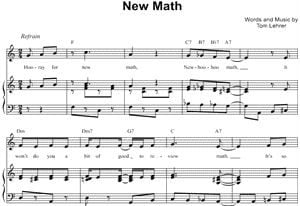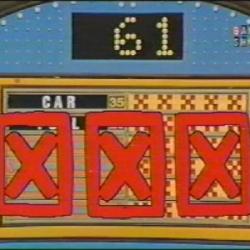• Teller, on disillusionment as a necessary, but “intermediary,” stage:
The deeper you get into magic, the more profound your amazement becomes. There’s an intermediary stage where you go, “Oh, is that all there is? It was just a thread?” And then when you work with a thread for four years, and you work out what must exactly be done to make that thread into something that is profound and difficult to imagine could be the cause of whatever it is you’re doing to it, you veer right into a different kind of amazement. It’s the amazement of the knowledgeable person. It’s the amazement of the astronomer who has studied everything about the stars that is available, and who sees and understands the mechanisms that we know about, but is able to appreciate how mysterious it all is in the larger picture.
• I will eventually get around to writing a piece like this one by Jake Ellison or this post from Ed Brayton — about the ridiculousness of doomsday prophecies surrounding this weekend’s eclipse, or the “Shemitah,” or the hoax of an impending asteroid collision now circulating in those parts of the Internet that like to circulate such hoaxes.
But not yet. Because right now the New York Mets are only 6½ games up with 12 games left to play, and while Ellison and Brayton are correct that nearly all prior prophecies of doomsday and the End of the World were proven false, I also still remember 2007. So I’m withholding judgment about the End of the World until after that last three-game series with the Nats.
 • Conservatives, William F. Buckley said, “Stand athwart history, yelling Stop!” (He meant that as a compliment.) But some conservatives follow that same impulse when it comes to math class, standing athwart algebra and yelling Stop! This was true with the old New Math of the 1960s, and then with the new-fangled long division people my age were taught in the 1970s and ’80s. And it’s true again now with the evil Common Core conspiracy to teach children how to add in their head.
• Conservatives, William F. Buckley said, “Stand athwart history, yelling Stop!” (He meant that as a compliment.) But some conservatives follow that same impulse when it comes to math class, standing athwart algebra and yelling Stop! This was true with the old New Math of the 1960s, and then with the new-fangled long division people my age were taught in the 1970s and ’80s. And it’s true again now with the evil Common Core conspiracy to teach children how to add in their head.
• Richard Beck: “The doctrine (or hope) of universal reconciliation (UR) has more to do with theodicy than soteriology, more to do with addressing the problems of suffering than about salvation. More, I have argued that UR is the only coherent theodicy available to the Christian faith. The only coherent theodicy.”
This is why, according to Team Hell, Beck is a dangerous heretic. But you’ll notice they can’t refute his point by offering some other coherent theodicy.
• “How to Get a Drink at a Crowded Bar.” Didn’t read it. Here’s how it actually works.
Step 1: Go to bar, order drink. Tip well and don’t be a jerk. In other words, treat the bartender like you’d want to be treated if you were in their shoes.
Step 2: Repeat Step 1.
• All country music again last night at the Box. The current loop includes both Jason Michael Carroll’s “Hurry Home” and Blake Shelton’s “Austin.” Those songs aren’t that old, but they seem older because they both tell tales of heartbreak and reconciliation mediated by the archaic technology of telephone answering machines.
I wonder whether Carroll’s song, from 2009, might prove to be the last of its kind — the last in a long (land)line of answering-machine songs. Answering machines were such useful storytelling devices that I suppose songwriters may want to keep using them in songs, but at this point it would seem like an exercise in nostalgia — or something that would only work in a period piece, akin to a song about a lost telegram. Then again, Pink had a big hit, in 2001, singing “I’m your operator, you can call anytime / I’ll be your connection to the party line,” even though party lines were something most of her audience would only have known about from old movies.
I dunno, have there been any new answering-machine songs in the past few years? Do you think we’ll ever hear another one? Leave a message after the beep.












